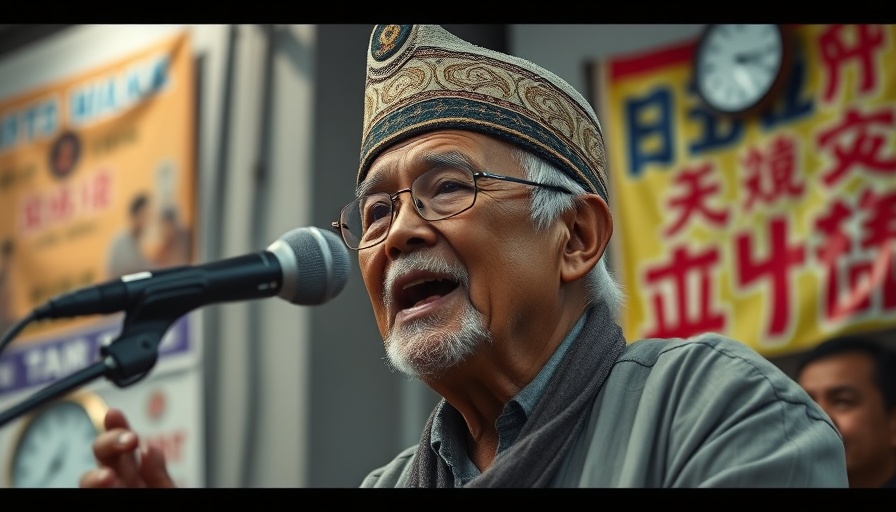
The Pressing Need for Reconciliation in Rivers State
Rivers State, once a thriving hub of economic activity, stands at a crossroads today, grappling with instability fueled by political discord. Chief Anabs Sara-Igbe’s recent statements highlight the urgency of mending fences among Rivers political leaders. As he poignantly remarked in a recent discussion, “Rivers State is suffering today; our economy is suffering today.” The crisis, he emphasizes, stems less from personal grievances and more from the need for effective governance and a united front.
In 'Rivers State is Suffering Today; Our Economy is Suffering Today - Chief Anabs Sara-Igbe,' the discussion dives into the urgent need for political reconciliation, exploring key insights that sparked deeper analysis on our end.
Historical Context: Lessons from the Past
The current turmoil in Rivers State is not without precedent. Historically, Nigeria has witnessed the downsides of political infighting, where leaders of the past have struggled to embrace the broader interests of the populace. The lasting effects of division during the civil war serve as a crucial lesson; many innocent citizens, as noted by Sara-Igbe, bore the brunt of political decisions that were beyond their control. Such painful experiences call for reflection, begging the question: how can Rivers leaders today avoid repeating history?
Why Peace Matters: A Unifying Call
At the heart of Chief Sara-Igbe’s appeal lies a simple yet profound truth: peace is paramount. He implores both Governor Nyesom Wike and former Governor Simon Lalong to set aside differences in the interest of the greater good. While political affiliations may cast shadows of rivalry, there is a pressing need for compromise and cooperation that transcends party lines. When peace reigns, economic opportunities flourish, and public welfare is prioritized. Rivers State’s economic potential can only be fully realized when its leaders unite rather than divide.
Parallel Examples: Turning Points in Leadership
Taking a historical perspective, Sara-Igbe cited examples from the past where political leaders have chosen diplomacy over division. Notably, the strategic agreements brokered during the early days of Nigeria’s democracy often facilitated peace by ensuring that diverse interests were acknowledged and respected. The way former leaders navigated contentious waters can offer valuable guidance for the current political climate in Rivers—showing that inner-party reconciliation can lead to long-term stability and progress.
Future Perspectives: The Path Forward
As Rivers State navigates these tumultuous waters, the importance of collective responsibility cannot be overstated. Leaders must actively seek forgiveness and allow for the rebuilding of trust. It will require concrete actions—such as establishing committees to mediate discussions as proposed by Sara-Igbe. Listening to the grievances of the populace and sharing power, as historical precedents suggest, could lead to governance that reflects the will of the people.
Call to Action: Engage with Leadership
It is critical for Rivers residents to engage with their leaders proactively. As citizens, voicing concerns and advocating for collaborative governance shapes a healthier political landscape where every voice—and vote—counts. Communities must mobilize support for initiatives aimed at reconciliation. Ultimately, it is the collective responsibility of every Rivers citizen to foster a peaceful environment conducive to progress.
In conclusion, Rivers State's future hangs in the balance. By learning from historical precedents, fostering dialogue between leaders, and prioritizing peace, the state can overcome the current challenges. In the words of Sara-Igbe, “Nothing surpasses peace,” and indeed, it is this peace that will drive economic revitalization and enhance the well-being of all Rivers people.
 Add Row
Add Row  Add
Add 


 Add Row
Add Row  Add
Add 

Write A Comment